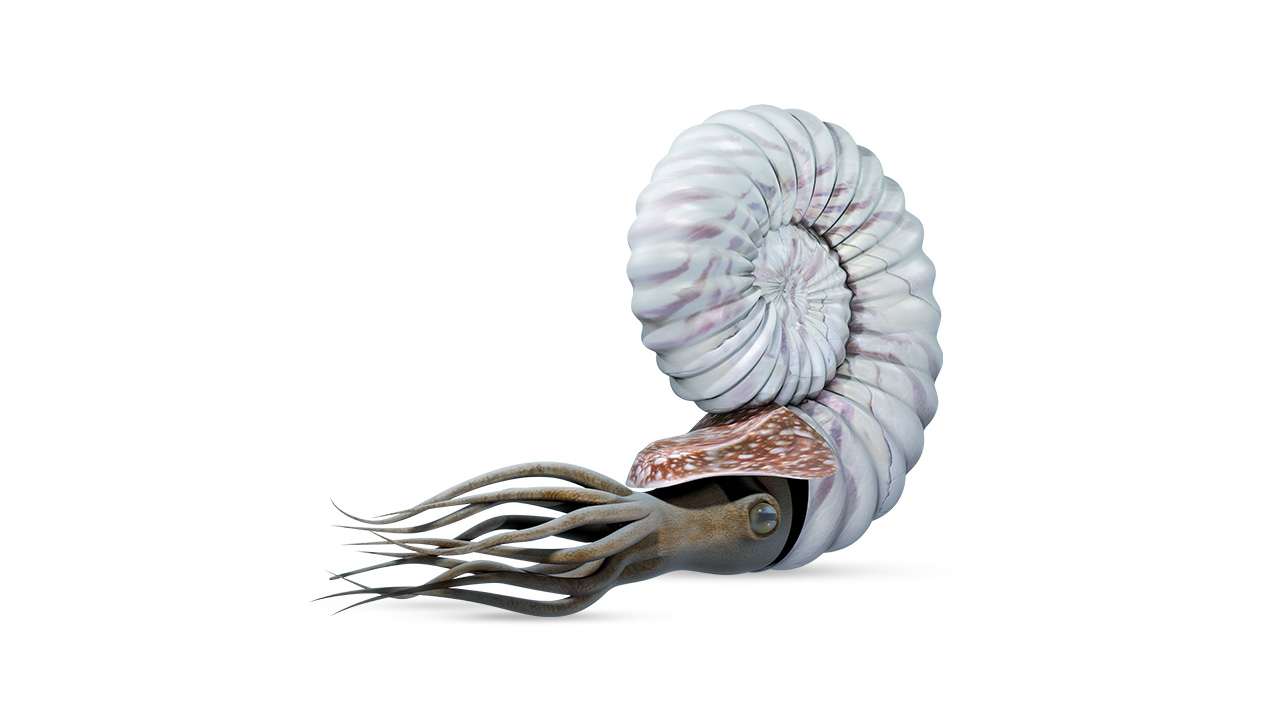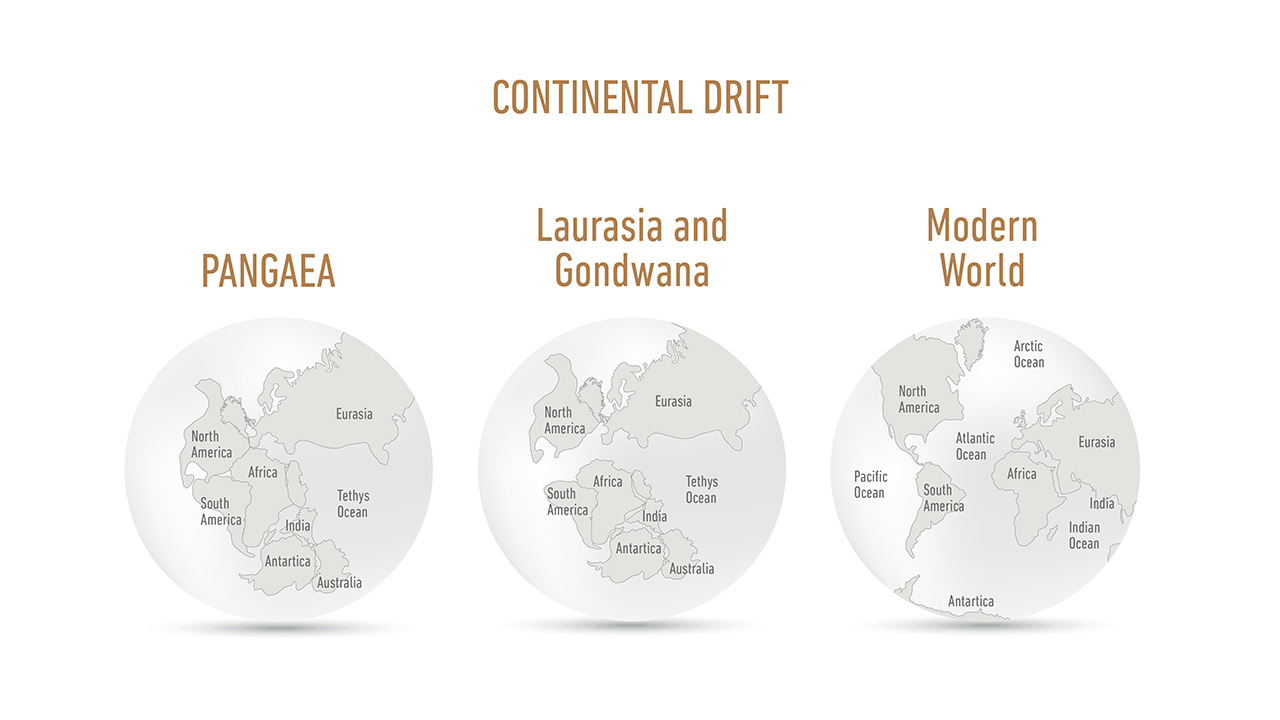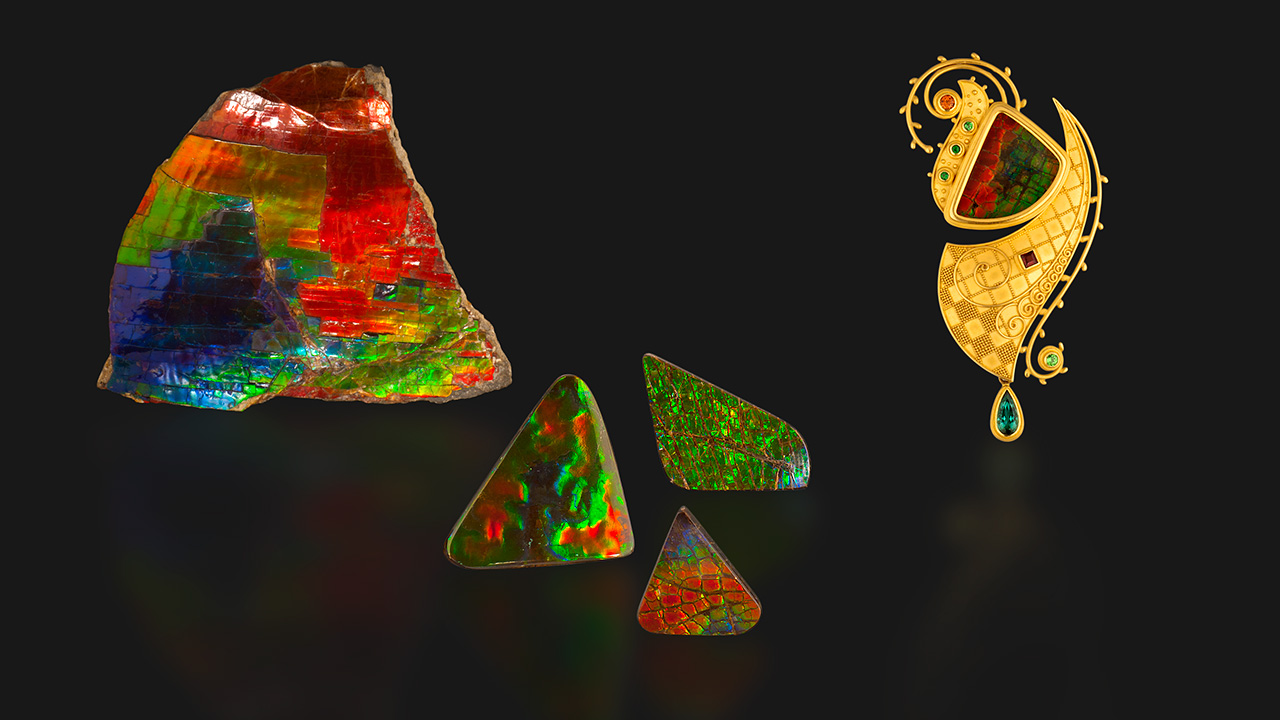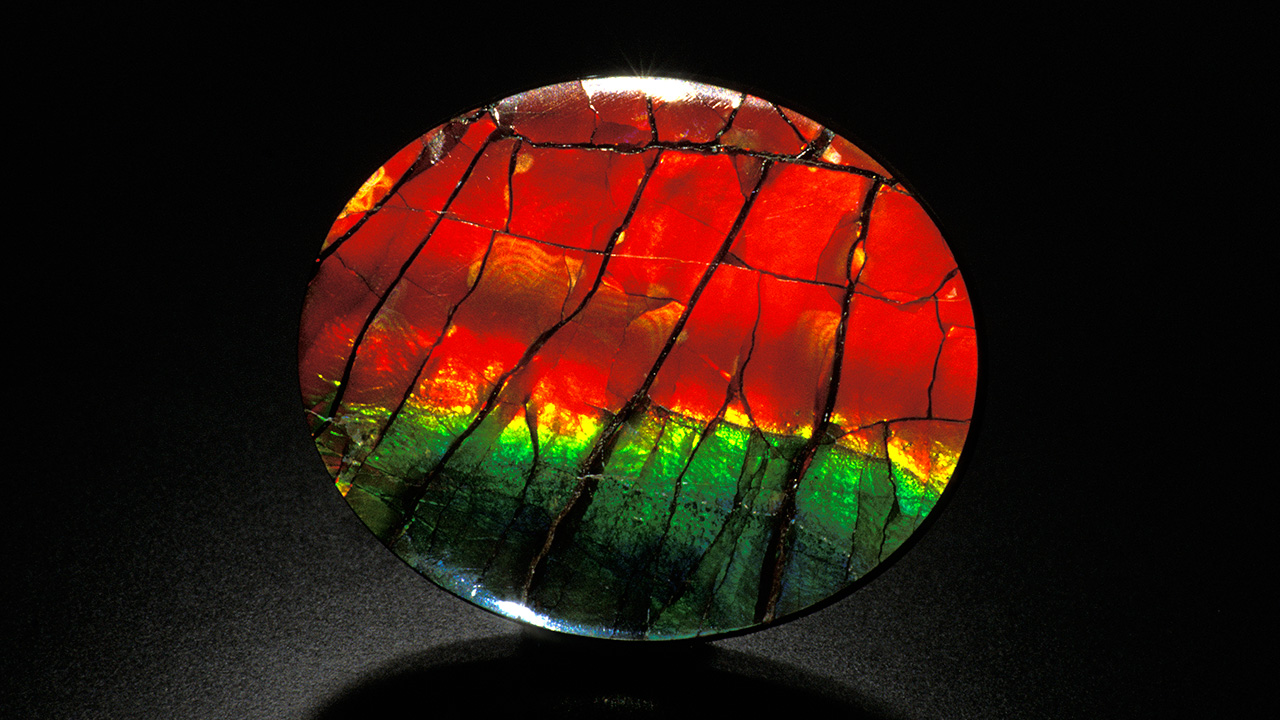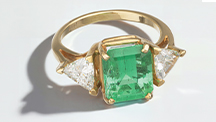Ammolite: The Fashionable Fossil
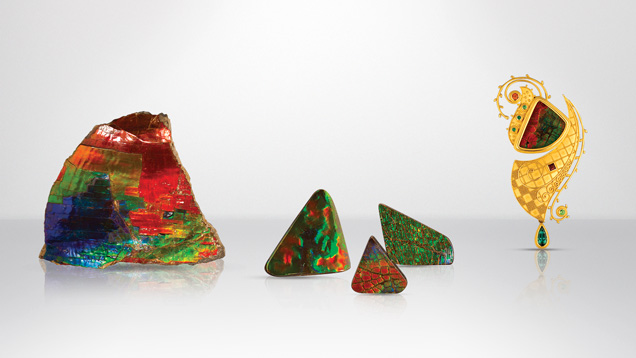 Pieces of Ammolite resemble stained glass. Courtesy of Korite International.
Pieces of Ammolite resemble stained glass. Courtesy of Korite International.If you like gemstones with provenance, then you’re going to love ammolite - iridescent fossilized ammonite shells found in Southern Alberta, Canada.
When the earth had only one continent with no forests or mammals, schools of ammonites hunted in the Tethys Ocean. Squid-like creatures with sharp, beak-like jaws buried in a ring of tentacles, ammonites ate what they could catch.
Ammonites suffered the same fate as the dinosaurs – they became extinct about 66 million years ago. An asteroid striking the earth and the cooling climate likely caused their demise.
As countless millennia passed, two species of ammonites – Placenticeras meeki and P. intercalare – slowly turned into stunningly colored fossils called Ammolite. Their brilliant colors enchanted Native Americans who wore them to bring good luck while hunting buffalo.
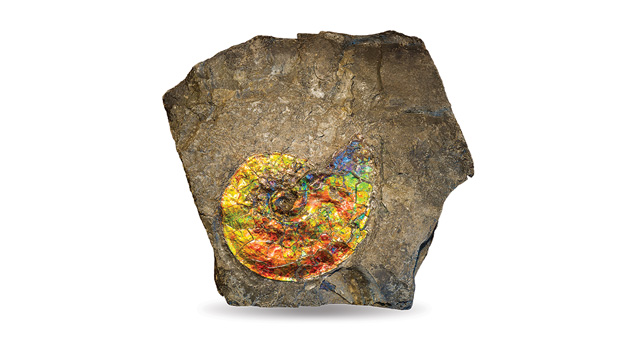
Ammolite embedded in rock.
Gift of Korite International
Gift of Korite International
Most Ammolite is green and red. Blue and violet Ammolite is more unusual, and typically more valuable. It is described as either fractured or sheet. Fractured Ammolite resembles stained glass; sheet Ammolite is an unbroken piece where the colors are continuous. Evocative names are used to describe its diversity of appearance: dragon skin (patterns resembling scales), cobblestone (patterns resembling a cobblestone road), moonglow (luminescent with few lines or fractures), and paint brush (looks like strokes of paint).
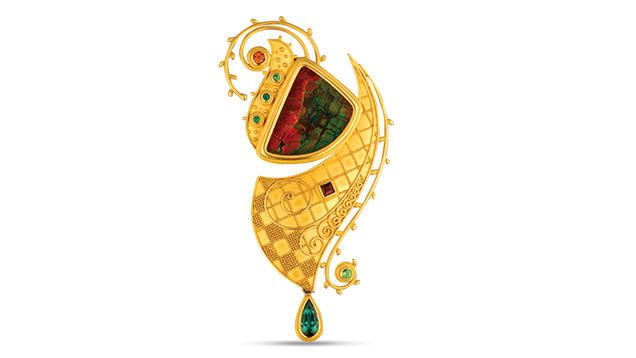
An Ammolite brooch by Carolyn Tyler
Sheet Ammolite is typically impregnated with a polymer to stabilize its thin surface layer. Because the layers are thin, Ammolite is almost always assembled into a doublet or triplet. Ammolite is often backed with a material like shale, black onyx, or glass to form a doublet. Sometimes a top layer of synthetic spinel or quartz is added to form a triplet.
Ammolite is often fashioned into pendants, brooches, and earrings, and sometimes sold as objet d’art. It is not a hard stone, 3.5 on the Mohs scale, which means it can scratch easily. Heat and chemicals, like acid, perfume, and hairspray, can also damage it. It’s highly recommended that you use only a damp, soft, non-abrasive cloth to clean it.

